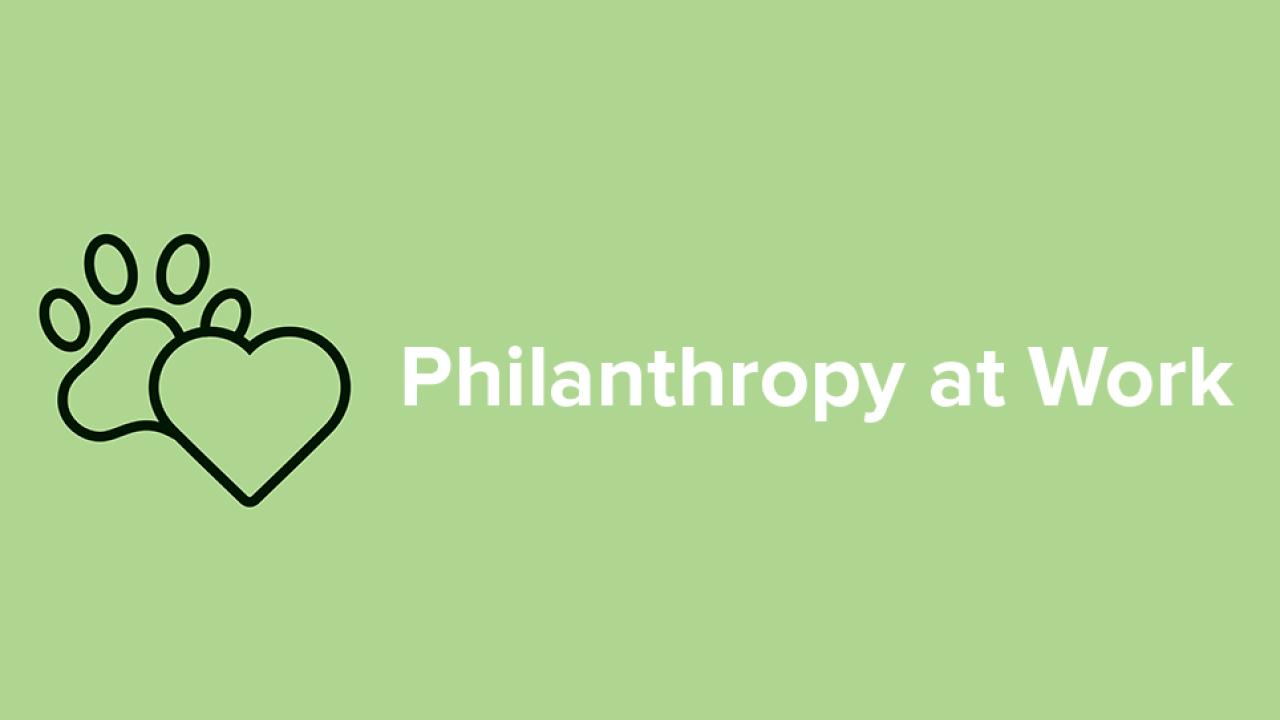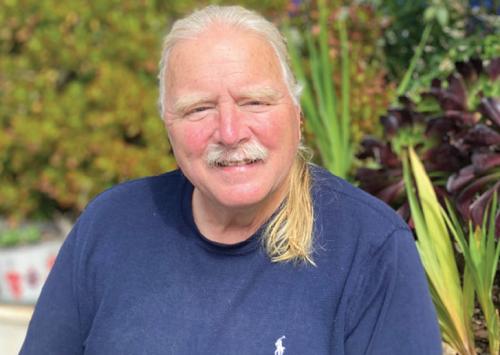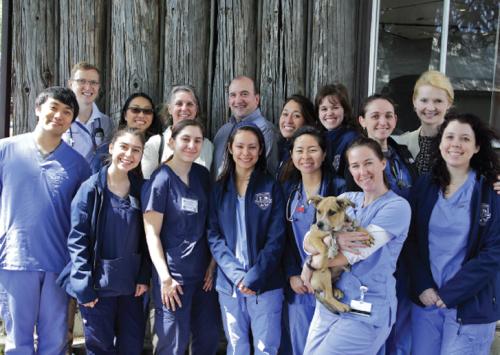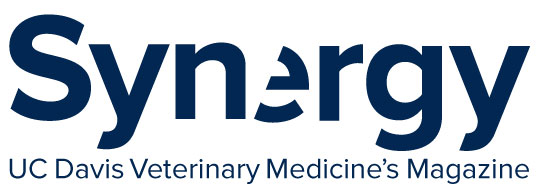
Philanthropy at Work
Pioneering Wildlife Veterinary Medicine

Dr. Dave Jessup ’85 knew when he graduated with his DVM from Washington State University in 1976 that he wanted to work with wildlife, but at the time, there wasn’t an internship or residency program available in that field. Instead, he came to the school for a residency in pathology. But 10 months later he was hired by what is now the California Department of Fish and Wildlife (CDFW) as its first wildlife veterinarian.
During his 33-year career with the CDFW, Jessup earned a Master’s of Preventive Veterinary Medicine at UC Davis in 1985, and became board certified in Zoological Medicine. Along the way, he mentored many who followed in his footsteps and created an endowment to establish the Free-Ranging Wildlife Health Residency at the Karen C. Drayer Wildlife Health Center.



It was the first three-year formal residency program supported cooperatively by a university veterinary medicine program and a state wildlife agency, the CDFW. “If you want the world to be different, you have got to be the change,” Jessup said. “I hope the residency provides training that allows some of our best and brightest young veterinarians to succeed and become leaders in the field — and maybe help establish similar programs elsewhere.”
Among his many projects, Jessup developed new methods and drugs for safer capture of wildlife, described new wildlife disease problems in terrestrial animals, and investigated causes of morbidity and mortality in southern sea otters and other marine mammals and birds. He also worked with wildlife experts in Africa, where capture and conservation of wildlife was often more advanced than in the United States.
“Dave was a pioneer for free-ranging wildlife veterinary medicine in California and throughout the world,” said Dr. Michael Ziccardi, executive director of the One Health Institute. “He showed me as a veterinary student that people interested in non-traditional animal health career paths can forge their own way if they truly are dedicated to the path.”
Jessup’s early collaboration with the school helped create the Karen C. Drayer Wildlife Health Center and demonstrated that training programs developed as partnerships can lead to unparalleled educational opportunities.
“Dave was the very first veterinarian to encourage me to follow my dream to become a wildlife veterinarian,” said Dr. Kirsten Gilardi, director of the Karen C. Drayer Wildlife Health Center. “Thirty-two years later, he is still profoundly influencing careers with his support of our wildlife health residency program.”

A Passion for Supporting Students and Community
Dr. Tom Campi (DVM ’89, MPVM ’89) knew from an early age that he wanted to be a veterinarian, but never dreamed of the many opportunities that his career would bring. He has worked with cattle, poultry, and swine producers, regulatory agencies, and other universities, and traveled the world. Grateful for the education and training he received at the school, Campi is committed to advancing its mission — especially in providing veterinary care to local underserved communities.
After watching a video about the Knights Landing One Health Veterinary Clinic (see article on page 8) at a Dean’s Leadership Council meeting several years ago, Campi couldn’t wait to fly home and share what he’d learned with his wife, Jeanine.
“It was somewhat of a wake-up call for me,” said Campi, a member of the council since 2015. “I hadn’t realized the veterinary needs in a community so close to UC Davis. We knew immediately that we wanted to get involved.”
The Campis visited the clinic in 2018 and were moved by the dedication shown by veterinary students, staff and faculty to provide free basic veterinary care to this community. The clinic approached the needs of underserved people and their pets in a manner the Campis had not seen before, inspiring them to support its life-changing work.
“Dr. and Mrs. Campi have offered enormous support,” said Dr. Jonathan Dear, associate professor of clinical Small Animal Internal Medicine and former faculty medical director of the Knights Landing Clinic. “Their generosity has helped sustain clinic programs by allowing student leaders to focus on obtaining additional financial support through grants and meeting the challenges of the COVID pandemic, rather than struggling to pay the bills and maintain operations.”
The clinic’s One Health approach and professional development opportunities also impressed the Campis. They noted the value of veterinary and medical students collaborating and having rounds together.
“Their passion for supporting students and the community is an inspiration to all of us — faculty advisors, students, and other supporters of the clinic,” said Dr. Paulina Crook, director of Global Programs and faculty advisor for the clinic.
